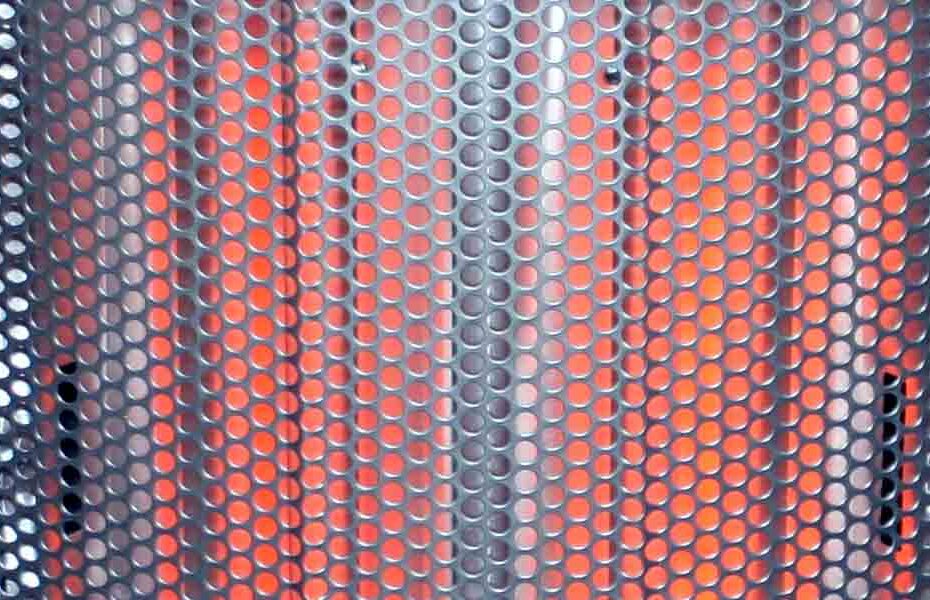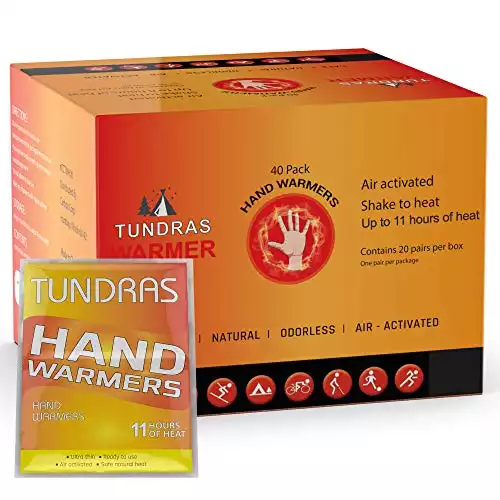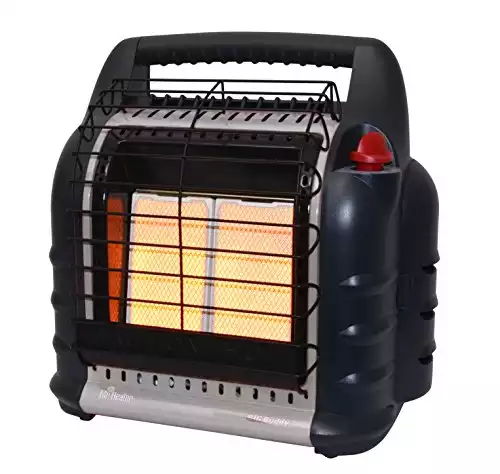[ad_1]
If you want a way to heat your home during a power outage, a battery-operated heater seems like the logical choice. Unfortunately, while some battery-operated heaters exist, they are useless for power outages. Here’s why – and what the better alternatives are.
Why Battery Operated Space Heaters Don’t Exist
Heating requires a massive amount of energy. A battery operated heater would have to have a HUGE battery to store enough energy to heat your home.
Let’s say you only want to heat one room with a battery powered heater.
- On average, it takes approximately 10 watts per square foot to heat a well-insulated room.
- A 150-square-foot room would require approximately 1,500 watts (or 1.5 kilowatts) of energy per hour of heating.
That means you’d need 35 kilowatt hours (kWh) of battery storage to keep a small room warm through a 24-hour power outage. Oh, and that’s assuming that the battery is 100% efficient. Realistically, you will lose at least 10% of the power because of inefficiency.
To put this in perspective, the Tesla Powerwall has 13.5kWh of battery storage. Any battery operated heater would need to have the equivalent of approximately three Tesla Powerwalls!
Even if this were economically feasible, the heater would be huge and heavy. One Tesla Powerwall weighs over 250 lbs. So, imagine how heavy a battery operated heater capable of heating your home would be.
What about Running a Space Heater on a Power Station?
I love power stations as a way to power devices like phones, medical equipment, USB lights, etc., during blackouts. But, for the same reason that battery operated heaters don’t exist, power stations are NOT meant for running space heaters.
A typical space heater requires 1,500 watts of energy. My Bluetti EB70, for example, has 716Wh of storage. That means it could power a space heater for a measly 28 minutes! There are larger-capacity power stations, but even these aren’t able to keep a space heater going for more than a couple of hours.
Also read our guide to indoor generators
What Battery-Operated Heaters Are Meant For
The battery operated heaters you can find for sale only produce a small amount of heat before the battery dies. Assuming you have a way to recharge the battery, this is okay for heating your hands or pre-warming boots.
Even for this, I would rather use chemical hand warmer packets than a battery operated heater. It’s cheaper and doesn’t require power.
Since cheap Chinese brands make most of the battery operated hand heaters, they are prone to breaking – so those chemical hand warmer packets are more reliable.
Alternatives to Battery Powered Heaters
It’s important that you have an emergency heater for power outages. Below are the best alternatives to battery powered heaters.
Heat Yourself First
Before you think about how you will heat your home during a power outage, think about how you will warm yourself. Ensure you have survival blankets, an emergency sleeping bag, and appropriate clothing.
Propane Heater
Some propane heaters can safely be used indoors. Because propane can store a lot of energy and is affordable, this is a good method for heating during power outages.
Also read: Best propane heaters for indoor use
Kerosene Heater
Kerosene heaters have a higher risk of carbon monoxide than propane heaters but are a viable solution and often cheaper.
Also read: Best kerosene heaters for indoors
Gas or Diesel Generator
Standard generators for power outages run on gas or diesel. They are noisy and cannot be used indoors. You’ll need outdoor-rated cords to connect appliances to them. Once set up properly, you can run a space heater off a generator.
Read about the different types of generator
Power Station + Electric Blanket
As mentioned, you can’t run a space heater on a power station. However, you can use the power station to run an electric blanket. This method is efficient because you only warm your body through contact heating instead of the entire room.
[ad_2]
Source link


